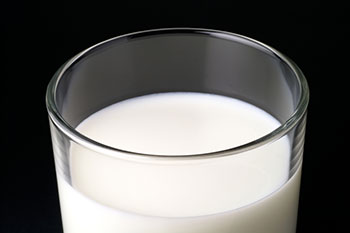More Health and Nutrition Bites
Related
DASH diet: more than high blood pressure?
For years the go-to diet for treating high blood pressure has been the DASH diet. It was, after all, devised by the National Institute of Health (NIH) for that exact purpose, hence its name: Dietary Approaches to Stop Hypertension. There's significant research to demonstrate that it's an effective means of treating high blood pressure in those who are already hypertensive, but it's also been shown to improve scores in those whose blood pressures are nearer normal.
Dietary Fat and the Risk of Alzheimer's Disease
It has become clearer and clearer that diets high in saturated fat and trans fats are associated with health problems. I have written about many different research studies that link diets high in these types of fats with heart disease and stroke. Recently, however, a very well designed study shows a clear connection between Alzheimer's Disease and an increased intake of saturated and trans fat.
Dairy products, calcium, and fat intake
The National Dairy Council would have you believe that three servings of dairy products per day will help you lose weight. That's not quite true, as the original research followed people who had not previously been getting enough calcium going on a reduced-calorie diet that included the recommended three servings of low-fat dairy products in their diet plan.
Health & Nutrition Bites
Get the latest health and diet news - along with what you can do about it - sent to your Inbox once a week. Get Dr. Gourmet's Health and Nutrition Bites sent to you via email. Sign up now!
Does the DASH diet have to be low-fat?

One of the challenges in studying diet is that we're studying, well, people. Asking people just to recall what they eat is prone to error (although there are ways to ensure more accurate data), and as anyone who has tried to lose weight on a strict diet will tell you, it's tough to stick to a restrictive diet for the long haul.
These sorts of issues are just as prevalent for more mainstream diets as they are for fad diets, and the DASH diet (Dietary Approaches to Stop Hypertension) is no exception. The most common hurdle with the DASH diet is the amount of fat - or rather, the fairly low amount of saturated fat in the diet: the goal is about 6% of total calories from saturated fats and about 27% of total calories from all fats. For a 2,100 calorie diet that's about 14 grams of saturated fat and 63 grams of total fat.
The DASH diet, you may recall, was developed initially to treat high blood pressure, but recently I reported on research that showed that it also helps improve total cholesterol scores and reduce LDL cholesterol (the bad cholesterol). In light of the difficulty people have sticking to a more restrictive diet, researchers in Northern California wondered, and taking into account other studies suggesting that dietary fat is not the bad guy we always thought, what would be the effects of consuming full-fat dairy products instead of the typical low- and non-fat dairy products in the context of a DASH diet? (Am J Clin Nutr 2016;103:341-47)
Sixty normal and clinically overweight men and women participated in a feeding study to find out. They were randomly assigned to one of three groups, and that group rotated through three different diets (designed to maintain their weight) in a random order, following each diet for three weeks then following their own usual diet for two weeks. The three diets were as follows:
A control diet of 47% of calories from carbohydrates, 14% from protein, 38% from fat (16% saturated fat), and 141 grams of total sugar.
A DASH diet of 55% of calories from carbohydrates, 17% from protein, 27% from fat (8% saturated fat), and 158 grams of total sugar
A High Fat DASH (HF-DASH) diet of 43% of calories from carbohydrates, 18% from protein, 40% from fat (14% from saturated fat), and 93 grams of total sugar.
After each dietary period the participants were weighed; their waist and hip circumferences measured; blood drawn for cholesterol, glucose, and insulin scores; and their blood pressures were taken. The authors found that both the DASH and the HF-DASH reduced participants' blood pressures, both systolic (the top number) and diastolic (the bottom number) about the same amount. That's interesting because while the amount of sodium in the control diet was right around 3,000 milligrams per day, the DASH and HF-DASH diets only cut sodium to about 2,700 milligrams per day: usually those following a DASH diet are urged to keep their sodium under 2,400 milligrams/day.
The primary goal, however, was whether cholesterol scores were improved as much for the HF-DASH as for the standard DASH diet. While the HF-DASH diet and DASH diet both reduced total cholesterol about the same amount, the DASH diet also decreased both LDL and HDL cholesterol (remember the HDL cholesterol is the number you want to be higher).
What this means for you
The outcomes here add to our growing sense that dietary fats are not the bugaboo we thought they were. Note, also, that the High Fat DASH diet adjusted for the greater number of calories in fat by cutting sugars - in this case mostly from fruit juices - so the link between sugar and cholesterol is another avenue that needs to be explored.
You're probably wondering about that issue with sticking to a diet. The authors provided all participants with two of their three meals per day (lunch, dinner, and some snacks) as well as instructions for side dishes and breakfasts, and collected urine samples to test for sodium and potassium excretion in order to monitor macronutrient intake.
First posted: February 10, 2016
